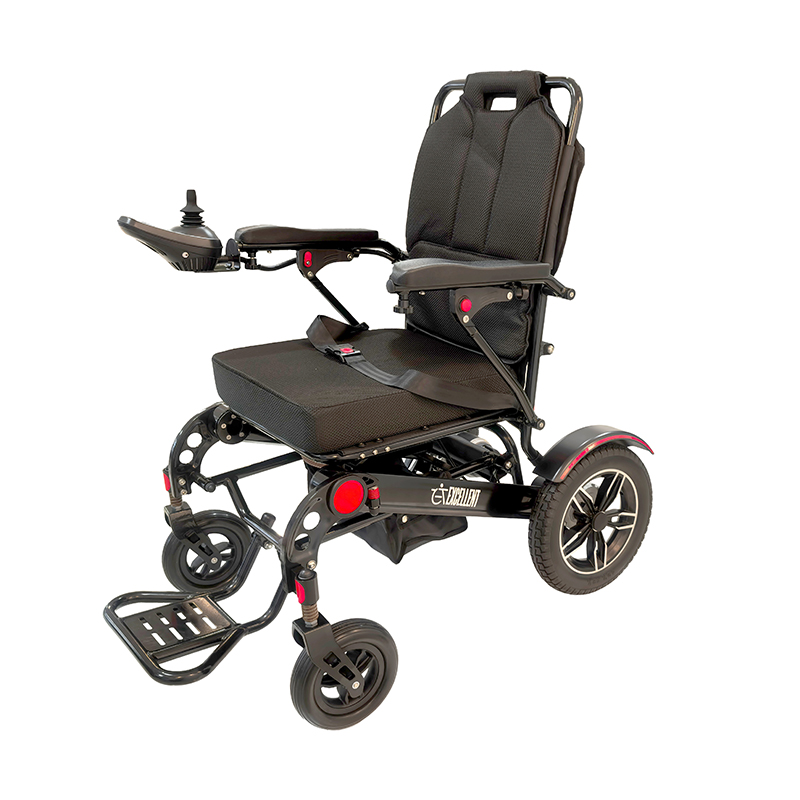Assessing Your Needs and Requirements
Choosing the right electric wheelchair manufacturer begins with a thorough understanding of your personal needs and requirements. These needs will vary depending on the individual's mobility issues and lifestyle preferences.
Identifying Personal Mobility Needs
Before selecting a manufacturer, identify the specific mobility challenges you face. Consider factors such as the terrain you frequently encounter, the amount of time you spend in the wheelchair daily, and any specific medical requirements, like the need for custom seating or support.
Considering Lifestyle and Usage Patterns
Your lifestyle plays a crucial role in determining the features you need in an electric wheelchair. Whether you require a lightweight portable chair for travel or a heavy-duty model for rugged outdoor use, these choices impact the choice of manufacturer.
Involving Healthcare Professionals in Your Decision
Consulting with healthcare professionals is vital in the selection process. Their expertise ensures that the chosen wheelchair meets both medical and lifestyle criteria.
Role of Therapists and ATPs
Occupational therapists and Assistive Technology Professionals (ATPs) can provide valuable insights into the technical specifications that best suit your condition. They can recommend specific manufacturers known for offering custom solutions to complex needs.
Importance of a Comprehensive Evaluation
A comprehensive in-person evaluation can highlight which features are essential. It allows for a tailored approach that may include specialized seating, control systems, and custom configurations.
Understanding Power Base Configurations
The power base is a critical component of electric wheelchairs, and different configurations offer unique benefits depending on your needs.
Types of Drive Wheel Configurations
- Front-Wheel Drive: Offers good traction and stability for outdoor use.
- Mid-Wheel Drive: Known for the tightest turning radius, ideal for indoor environments.
- Rear-Wheel Drive: Provides greater maneuverability and stability at higher speeds.
Weight Capacity Considerations
Understanding the weight capacity is essential. Standard models typically support up to 300 pounds, but options for bariatric users can accommodate up to 1,000 pounds.
Evaluating Seating and Positioning Options
A crucial aspect of comfort and usability in an electric wheelchair is the seating and positioning system.
Power Seating Systems
Many manufacturers offer power seating systems that include features like power tilt, recline, and leg elevation. These systems are critical for pressure relief and enhanced comfort during extended periods of use.
Custom Seating Solutions
Custom seating solutions are offered by a select group of manufacturers who specialize in creating tailored options to fit the specific dimensions and needs of the user.
Exploring the Role of Electronics in Wheelchairs
Modern electric wheelchairs come equipped with advanced electronic systems that enhance functionality and user independence.
Advanced Drive Controls
Customizable drive control systems, often featuring Bluetooth connectivity, allow users to operate smartphones and other devices directly from their wheelchair.
Importance of Battery Life and Capacity
Standard electric wheelchairs typically offer a range of about 10 miles on a full charge. High-capacity batteries can extend this, which is important for those with active lifestyles.
Prioritizing Comfort and Ergonomic Features
Comfort is a primary factor influencing the choice of an electric wheelchair manufacturer. Ergonomic design elements enhance user satisfaction and health.
Cushioning and Support Systems
The right cushioning can prevent pressure sores and enhance overall comfort. Manufacturers offering a range of custom cushions and back supports can better meet diverse user needs.
Adjustable Seating Features
Options like adjustable armrests, backrests, and headrests further personalize the wheelchair, ensuring both comfort and support.
Reviewing Manufacturer Reputation and Support
The reputation of a manufacturer is a strong indicator of the quality and reliability of its products.
Assessing Manufacturer Reputation
Research online reviews, consult with health professionals, and consider testimonials from current users. A manufacturer known for high-quality, custom solutions is often more reliable.
Customer Support and Warranty
Evaluate the manufacturer's customer support services and warranty terms. They should offer prompt assistance and coverage for repairs within a reasonable time frame.
Considering Cost and Insurance Options
Cost is a significant consideration. Understanding pricing structures and evaluating insurance options can make acquiring an electric wheelchair more feasible.
Breaking Down Cost Elements
Electric wheelchairs can range from $2,000 to over $6,000 depending on custom features and technology. Factor in additional costs like batteries and maintenance when budgeting.
Exploring Insurance Coverage
Many insurance plans cover part or all of the cost of electric wheelchairs. Consult with your healthcare provider and insurance company to determine eligibility and coverage specifics.
Navigating Trial Periods and Warranty Terms
A trial period allows you to evaluate the wheelchair's performance in real-world conditions before committing to a purchase.
Importance of Trial Periods
A manufacturer offering a trial period provides an opportunity to ensure the wheelchair meets your needs without immediate financial commitment.
Understanding Warranty Coverage
Review the warranty terms carefully. Look for warranties that cover major components like motors and electronics for a minimum of two years, offering peace of mind.
Making a Final Decision and Purchase
After thorough evaluation, making the final choice involves synthesizing all gathered information to identify the best manufacturer for your needs.
Weighing All Factors
Consider all factors from comfort and customization options to cost and manufacturer support. The manufacturer that best aligns with comprehensive needs will be the optimal choice.
Placing the Order
Once a decision is made, work with your healthcare provider to place the order with the selected manufacturer. Ensure all custom specifications are communicated clearly to avoid issues.
Excellent Provide Solutions
Finding the right electric wheelchair manufacturer involves a comprehensive evaluation of personal needs, comfort, custom options, and manufacturer reputation. Prioritize working with healthcare professionals to align medical requirements with lifestyle needs. Consider manufacturers that offer customized solutions, ensuring the final product enhances mobility and quality of life. Ensure all facets of customer support, trial periods, and costs are analyzed to make an informed and satisfying choice. By following these structured steps, users can secure an electric wheelchair that is both practical and transformative.
User hot search: electric wheel chairs
Post time: 2025-07-27 13:16:06

.png)





































